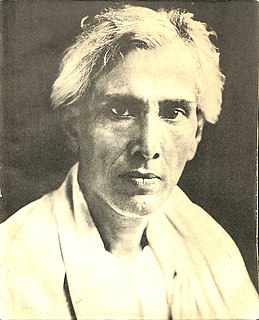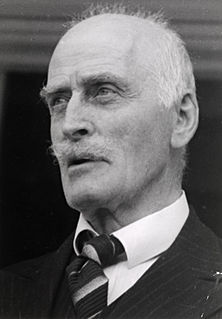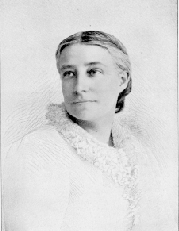A Quote by John Dryden
For my part, I can compare her (a gossip) to nothing but the sun; for, like him, she knows no rest, nor ever sets in one place but to rise in another.
Related Quotes
Love is an immortal wound that cannot be closed up. A person loses something, a part of her soul, when she loves someone. And she goes about looking for that lost part of her soul, for she knows that otherwise she is incomplete and cannot be at rest. It is only when she is with the person she loves that she becomes complete again in herself; but the moment he leaves, she loses that part which he has taken with him and knows no rest till she has found him once more.
Where woman has taken her place in business she has found her method ready-shaped for her, and following that, she does her work,if with a certain amount of monotony, yet without undue fatigue. Her hours are fixed, and as a rule she gets needful change of scene as she goes to her business and returns to her home or the place where she lives. But the "home- maker" has not, nor can she have, any such change, and her hours are always from the rising of the sun beyond the going down of the same.
Home they brought her warrior dead: She nor swooned, nor uttered cry: All her maidens, watching, said, 'She must weep or she will die.' Then they praised him, soft and low, Called him worthy to be loved, Truest friend and noblest foe; Yet she neither spoke nor moved. Stole a maiden from her place, Lightly to the warrior stepped, Took the face-cloth from the face; Yet she neither moved nor wept. Rose a nurse of ninety years, Set his child upon her knee- Like summer tempest came her tears- 'Sweet my child, I live for thee.' -Alfred Lord Tennyson
wisdom is like a bottomless pond. You throw stones in and they sink into darkness and dissolve. Her eyes looking back do not reflect anything. I think this to myself even though I love my daughter. She and I have shared the same body. There is a part of her mind that is a part of mine. But when she was born she sprang from me like a slippery fish, and has been swimming away ever since. All her life, I have watched her as though from another shore.
... But I'm annoying you to no purpose with my arguments. A person whose house is only open on the west can't see the sun rise at dawn; it's only seen when the sun sets at dusk. If one tries to compare the color and appearance of the two, one will go on arguing forever... ...The fault lies not with the vision but with the closed windows. If you look out of only one opening till the day you die, you'll ever see anything new.
Sometimes a woman's love of being loved gets the better of her conscience, and though she is agonized at the thought of treating a man cruelly, she encourages him to love her while she doesn't love him at all. Then, when she sees him suffering, her remorse sets in, and she does what she can to repair the wrong.
She was in a terrible marriage and she couldn't talk to anyone. He used to hit her, and in the beginning she told him that if it ever happened again, she would leave him. He swore that it wouldn't and she believed him. But it only got worse after that, like when his dinner was cold, or when she mentioned that she'd visited with one of the neighbors who was walking by with his dog. She just chatted with him, but that night, her husband threw her into a mirror.
The images were gone, but Calvin was there, was with her, was part of her. She had moved beyond knowing him in sensory images to that place which is beyond images. Now she was kything Calvin, not red hair, or freckles, or eager blue eyes, or the glowing smile; nor was she hearing the deep voice with the occasional treble cracking; not any of this, but - Calvin. She was with Calvin, kything with every atom of her being, returning to him all the fortitude and endurance and hope which he had given her.
It is natural for a young fellow to like the acquaintance of females and customary for him to keep them company when occasion serves. Some one of them is more agreeable to him than the rest; there is something, he knows not what, pleases him, he knows not how, in her company. This I take to be what is called love with the greatest part of us.
Then her eyes narrowed. The sun was spilling in the window behind her and Dageus's eyes were golden, dappled with darker flecks. Smoky and sensual, fringed by thick dark lashes, but gold nonetheless. "What is with your eyes?" she exclaimed. "Is it part of being a Druid?" "What color are they?" he asked warily. "Gold." He flashed her another unguarded smile. It was like basking in the sun, she thought, tracing her fingers over his beard-shadowed jaw, smiling helplessly back.
The other one he loved like a slave, like a madman and like a beggar. Why? Ask the dust on the road and the falling leaves, ask the mysterious God of life; for no one knows such things. She gave him nothing, no nothing did she give him and yet he thanked her. She said: Give me your peace and your reason! And he was only sorry she did not ask for his life.
Anyway, you can't leave her like that. You can't do that to the woman. She doesn't deserve it; nobody does. You don't belong to her and she doesn't belong to you, but you're both part of each other; if she got up and left now and walked away and you never saw each other again for the rest of your lives, and you lived an ordinary waking life for another fifty years, even so on your deathbed you would still know she was part of you.
There was a warmth of fury in his last phrases. He meant she loved him more than he her. Perhaps he could not love her. Perhaps she had not in herself that which he wanted. It was the deepest motive of her soul, this self-mistrust. It was so deep she dared neither realise nor acknowledge. Perhaps she was deficient. Like an infinitely subtle shame, it kept her always back. If it were so, she would do without him. She would never let herself want him. She would merely see.
The Girl of the Period, sauntering before one down Broadway, is one panorama of awful surprises from top to toe. Her clothes characterize her. She never characterizes her clothes. She is upholstered, not ornamented. She is bundled, not draped. She is puckered, not folded. She struts, she does not sweep. She has not one of the attributes of nature nor of proper art. She neither soothes the eye like a flower, nor pleases it like a picture. She wearies it like a kaleidoscope. She is a meaningless dazzle of broken effects.






































